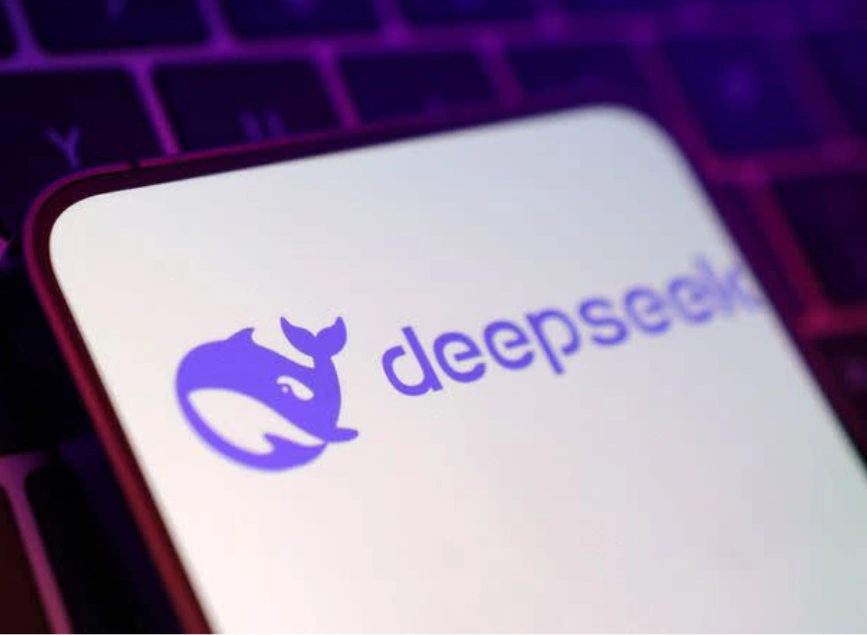
DeepSeek’s Ties to Chinese Military Raise Global Alarm
Key Developments at a Glance
| Indicator | Status |
|---|---|
| Company | DeepSeek, based in Hangzhou, China |
| AI Capability Claim | Claims parity or superiority over top U.S. AI models (since Jan 2025) |
| Military Collaboration | U.S. State Dept. confirms ties with Chinese military & intel orgs |
| Chip Access Strategy | Uses shell companies in Southeast Asia to bypass U.S. export bans |
| Cloud Services | Still hosted on Google Cloud, AWS, and Microsoft Azure |
| User Base | Tens of millions globally; accused of funneling U.S. user data to China via China Mobile |
Market & Political Reactions
| Factor | Current Status | Possible Consequences |
|---|---|---|
| DeepSeek’s Role | Accused of aiding China’s military & intel | Heightened scrutiny on U.S. tech firms hosting DeepSeek |
| U.S. Response | Official confirmation of military collaboration | Likelihood of sanctions or export restrictions increasing |
| Cloud Giants’ Position | Google, Amazon, and Microsoft still host DeepSeek | Political pressure to cease services mounting |
| Cybersecurity Concerns | Allegations of covert data routing via China Mobile | Regulatory push in U.S./EU for tighter data controls |
Why Tech Firms Are the New Geopolitical Battleground
In the age of AI and data dominance, technology firms are no longer just commercial entities—they are strategic assets at the heart of global power competition. Governments now treat:
- 🤖 AI as a multiplier for military and surveillance capabilities
- ☁️ Cloud infrastructure and 5G as vectors for influence and control
- 💾 Chip access and hardware supply chains as tools of economic warfare
This is why companies like DeepSeek are at the crosshairs of national security debates, especially when dual-use capabilities (civil + military) are involved.
Read More: Gold Holds Near $3,370 as Markets Brace for Iran’s Response to Airstrikes
Analysis: Impact on Markets and Global Policy
💻 U.S. Cloud Providers Under Pressure
Major players like Google Cloud, Amazon Web Services (AWS), and Microsoft Azure could soon face regulatory heat for maintaining DeepSeek as a client. If forced to suspend services, disruption to DeepSeek’s operations could follow—and set a precedent for future restrictions on Chinese tech firms.
📉 Trade Risks for U.S. Tech Giants
If the U.S. moves to sanction DeepSeek or blocks cloud access, it could escalate tensions in the ongoing tech cold war with China. This may lead to short-term volatility in the stock prices of AI firms, semiconductor manufacturers, and cloud service providers.
🔐 Rising Data Security Concerns
The allegation that DeepSeek is transferring U.S. user data via China Mobile’s covert infrastructure is likely to prompt:
- 🏛 Legislative inquiries in the U.S. and Europe
- 🔒 Stricter cybersecurity and data localization laws
- 🌍 Increased caution from global enterprise clients
Forward Scenarios: What Comes Next?
This revelation is not an isolated case, but part of a larger puzzle in the U.S.–China tech rivalry. The incident could mark a turning point in how AI providers are vetted, how cloud access is granted, and how export laws are enforced.
✅ Most Likely Scenario
- Direct U.S. sanctions against DeepSeek
- Formal pressure on U.S. cloud providers to sever ties
- Introduction of new export control measures around AI models, chips, and APIs
🚨 High-Risk Scenario
- China retaliates by tightening market access or imposing tech bans on American firms (Apple, Microsoft, NVIDIA)
- Potential for a broader decoupling in key tech industries, with real financial fallout for U.S. firms in China
Final Takeaway
The DeepSeek controversy underscores a new era in global power dynamics, where AI firms are no longer neutral players. They are strategic entities, and their partnerships, platforms, and data flows now shape not just markets—but national security doctrines.
🔍 Investors, regulators, and tech leaders must prepare for:
- Tighter cross-border data regulations
- More aggressive sanctions and export controls
- The emergence of fragmented AI ecosystems based on geopolitical alignment
In the long run, trust, transparency, and tech governance will define which AI firms thrive—and which ones become political liabilities.
Share
Hot topics

Best broker for gold trading
There’s always been a certain magic about gold. Before online charts and trading applications, people stored their wealth in coins and bars, trusting that gold would retain its value during...
Read more




Submit comment
Your email address will not be published. Required fields are marked *